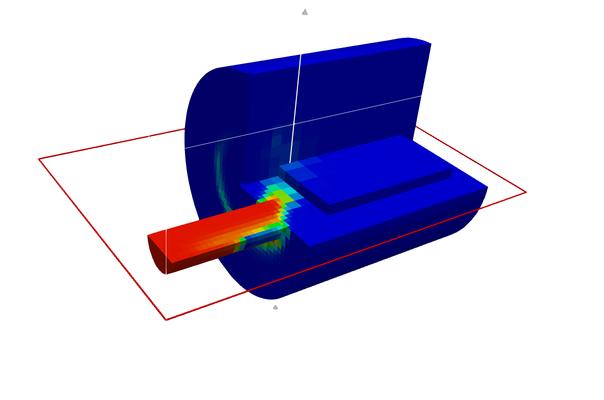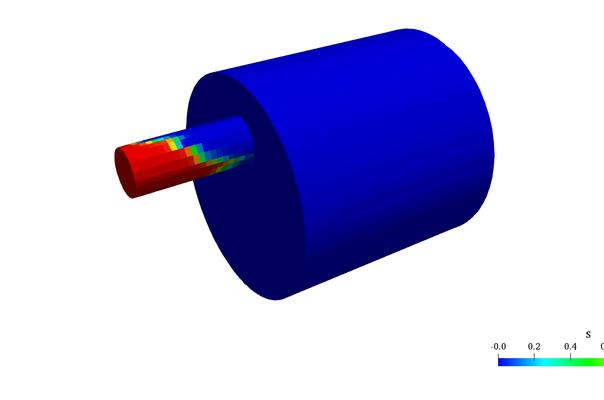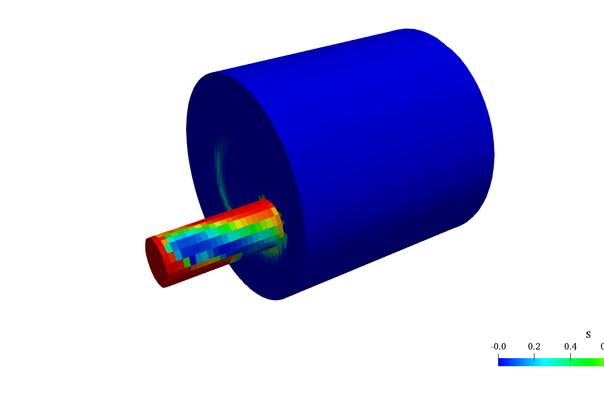Arbitrary Rotating Inlet ACMI
pimpleFoam, snappyHexMesh, arbitrary coupled mesh interface, dynamic mesh, coupling, decoupling, complex
The arbitrary coupled mesh interface (ACMI) condition is compelling if the usage of the boundary condition is well understood. The following training case builts an ACMI for a rotating inlet pipe, which is connected to a larger second pipe. The set-up is tricky and needs advanced techniques and applications for the correct ACMI generation.
Knowing how to use the ACMI boundary enables new possiblities
Tobias generated the case to analyze the numerical behavior of the interpolation and mapping strategy of the ACMI boundary condition. It is worth to mention that the momentum predictor will start introducing sources at some defined time steps. The result of the misbehavior is a high velocity field that drops the time step below 1e-17s. Based on this tutorial, geometries like fans can be meshed using the ACMI to avoid additional refinement and unnecessary high mesh resolution compared to the arbitrary mesh interface (AMI).



Published under the GNU General Public License 3
Over the last ten years, Tobias tried to publish a wide range of different materials related to OpenFOAM® and CFD. You know it much better than he does if the content is worth to be supported. If you want to thank Tobias for the work he did, feel free to tell the community your opinion about the work Tobias Holzmann is doing or you can email your thoughts directly to »
Support the work of Tobias Holzmann
The available OpenFOAM® training cases are tested and built for different OpenFOAM® versions (not distributions) on a Linux machine. During the tests, only the OpenFOAM Foundation version of OpenFOAM® was used. Furthermore, the following software packages are required for most of the training cases: Salome®, ParaView®, and for optimization tasks, one also needs the open-source software DAKOTA®. The OpenFOAM® cases might work with the ESI version of OpenFOAM® but it is not supported. For the OpenFOAM® extend project, the training cases will probably not work as the code diverged too much. Additionally, there is no support for Windows-based and MAC-based OpenFOAM® versions.
This offering is not approved or endorsed by OpenCFD Limited, producer and distributor of the OpenFOAM software via www.openfoam.com, and owner of the OPENFOAM® and OpenCFD® trade marks
Share the work on Your social network
Tobias would be grateful if you share his work on your social network in order to keep the OpenFOAM® community up to date. Furthermore, sharing the work will avoid that people investigate into topics, that are already prepared for your study such as the examples provided by Tobias Holzmann.


